Our Team
Principal Investigator
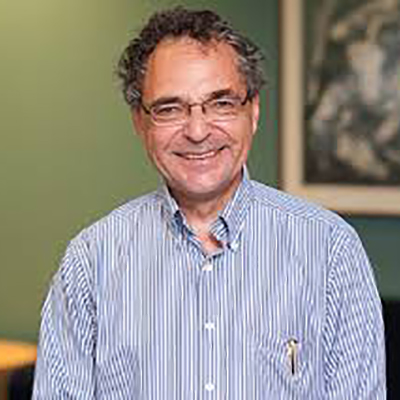
Paul G. Falkowski is the Bennett L. Smith Professor of Business and Natural Resources at Rutgers University. His research interests include evolution, paleoecology, photosynthesis, biophysics, biogeochemical cycles, symbiosis and sustainable energy. His current work is focused on understanding the origins of life, how electron transfer reactions are mediated, and how organisms transformed the geochemistry of Earth.
Email: falko@marine.rutgers.edu
Co-Investigators

George Bennett is the E. Dell Butcher Professor of Biochemistry & Cell Biology at Rice University. His current research interests include metabolic engineering of microbes for chemical production, genetic tools for synthetic biology, mechanisms of environmental responses of bacteria, and mechanisms of redox enzymes and structure-function analysis of protein electron carriers.
Email: gbennett@rice.edu
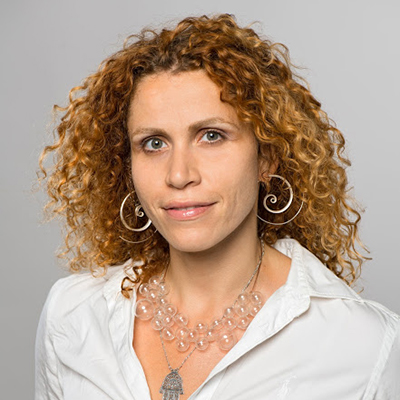
Yana Bromberg is a Professor in the Department of Biochemistry and Microbiology and Adjunct Professor at the Department of Genetics at Rutgers University. She is also a fellow at the Technical University of Munich Institute for Advanced Study. Research in the Bromberg lab is focused on developing bioinformatics tools for the molecular functional annotation of microbiomes, aiming to identify emergent functionality specific to individual environmental niches. The lab also builds tools for the analyses of human genomes for disease predisposition and the studies evolution of life’s electron transfer reactions.
Email: yana.bromberg@rutgers.edu
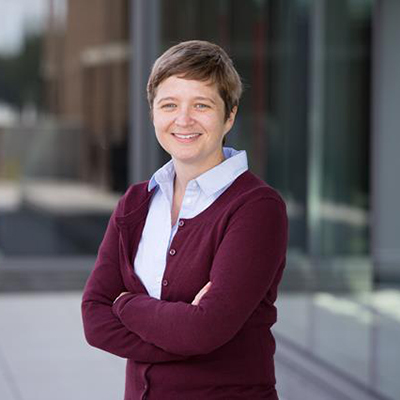
Kat Dawson is an Assistant Professor of Environmental Sciences at Rutgers University. She is a microbial biogeochemist. Her lab combines techniques from molecular biology, organic geochemistry, and stable isotope geochemistry (H, C, N, and S) to study microbial ecology, microbial transformation of organic molecules, and the molecular and isotopic imprints microbes leave behind in the geologic record.
Email: kat.dawson@rutgers.edu
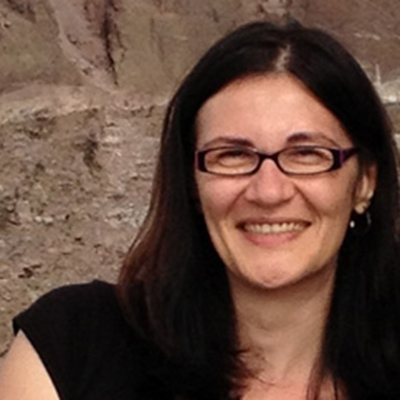
Mihaela Glamoclija is an Assistant Professor at Rutgers University, Newark. Her research focuses on investigations of microbial systems living in extreme environments and characterization of their biosignatures that can resist the geologic time. She is curious about the ways in which life interacts with the environment and the mechanisms that it uses to thrive under the extremes. The analytical techniques applied in most of her research tie together the disciplines of mineralogy, biogeochemistry and molecular biology.
Email: m.glamoclija@rutgers.edu
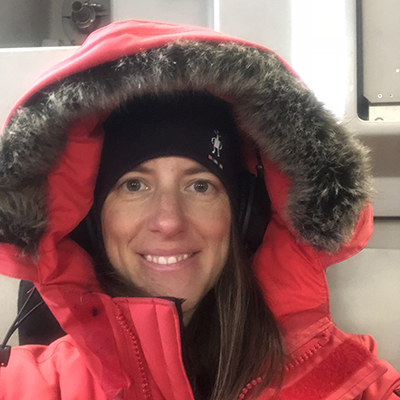
Juliane Gross is an Associate Professor in the Department of Earth and Planetary Sciences at Rutgers University. Her academic interests are focused on understanding the formation history and geochemical evolution of differentiated celestial bodies and early Solar System processes. Currently she is investigating the mineralogy, petrology, and geochemistry of extraterrestrial planetary samples using a variety of experimental and microanalytical techniques.
Email: jgross@eps.rutgers.edu
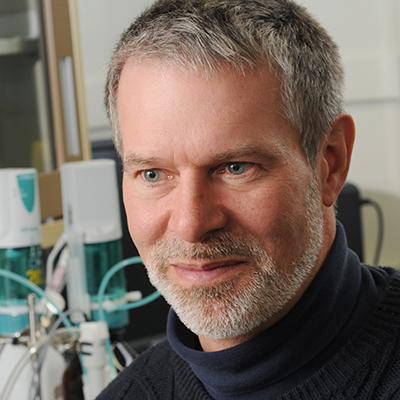
Robert M. Hazen is a Senior Staff Scientist at the Carnegie Institution of Sciences’ Geophysical Laboratory and the Clarence Robinson Professor of Earth Sciences at George Mason University.
Email: rhazen@ciw.edu
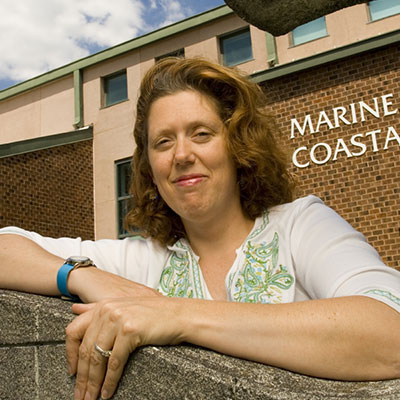
Janice McDonnell is a STEM educator in the Department of 4-H Youth Development at Rutgers University. She has developed a wide range of tools and professional development programs for both educators and scientists that help promote STEM learning. In addition to her role as a Co-I of the ENGIMA team, she is the Director of the NSF funded Center for Ocean Science Education Excellence Networked Ocean World (COSEE NOW), and of the Polar Interdisciplinary Coordinated Education (ICE) program.
Email: mcdonnel@marine.rutgers.edu
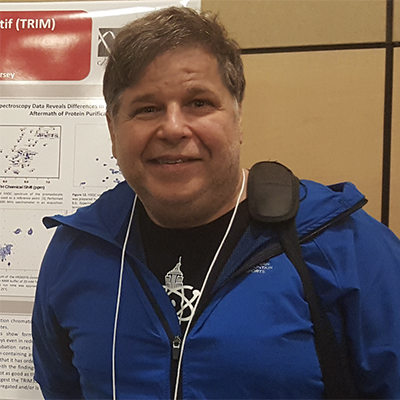
Gaetano Montelione is the Professor and Constellation Endowed Chair in Biocomputing and Bioinformatics at Rensselaer Polytechnic Institute (RPI). The laboratory studies the structures, dynamics, and evolution of proteins, using hybrid methods that combine NMR, small angle X-ray scattering, X-ray crystallography, evolutionary co-variance data, and computational modeling. The current emphasis is on describing the “conformational landscapes” of proteins and protein complexes, including proteins involved in cancer biology and RNA-activated innate immune response. The lab also develops NMR-based methods for guiding protein structure prediction, and for enabling de novo protein design.
Email: monteg3@rpi.edu
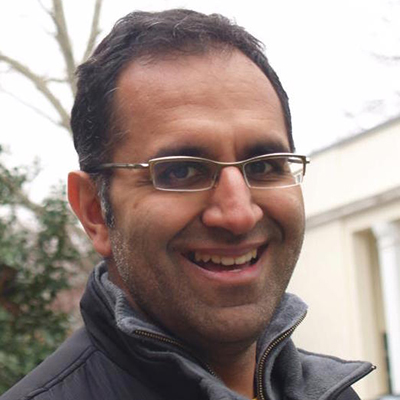
Vikas Nanda is a Resident Faculty Member at the Center for Advanced Biotechnology and Medicine at Rutgers University. The laboratory applies theoretical tools for protein design along with experimental biophysics to address fundamental problems in biogeochemistry and protein evolution. Research focus areas include the artificial photosynthesis, biomolecular homochirality, self-assembling molecular systems, and the structure of ancient proteins at the origins of life.
Email: nandavi@cabm.rutgers.edu
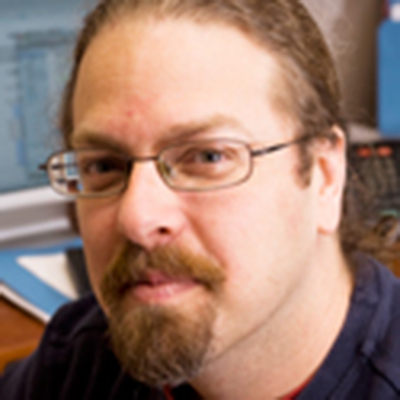
Jon Silberg is an Associate Professor in Biosciences at Rice University. His research draws on concepts, principles, and methods from science and engineering to elucidate and manipulate protein and cellular functions. His laboratory’s expertise in biochemistry and biomolecular engineering are employed to study living systems by taking advantage of classical methods for biochemical inquiry and developing and applying novel biotechnologies to support these investigations.
Email: joff@rice.edu
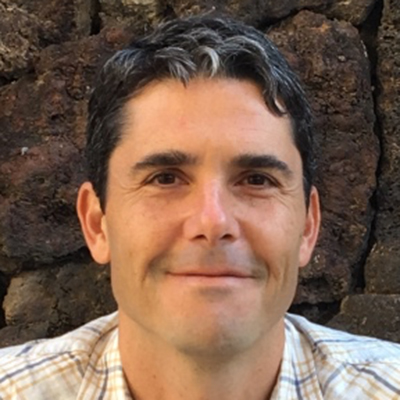
F. Akif Tezcan is Professor of Chemistry and Biochemistry at UC San Diego. His group’s research interests center on developing chemical tools for building functional protein assemblies and novel biological materials, and on understanding and expanding the roles of metals in biology.
Email: tezcan@ucsd.edu
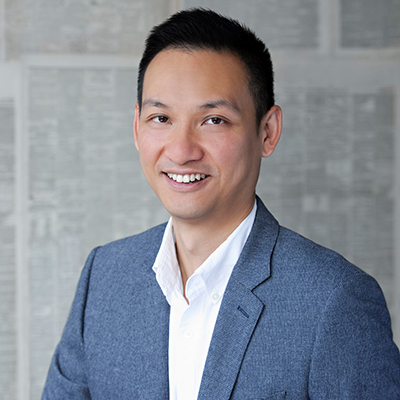
Nathan Yee is a Professor of Earth and Planetary Sciences at Rutgers University. His research involves studying microbe-metal interactions. He is interested in understanding the role of microorganisms in the geochemical cycling of metals, and how metal geochemistry affects the ecology and evolution of microbial life.
Email: nyee@envsci.rutgers.edu
Collaborators
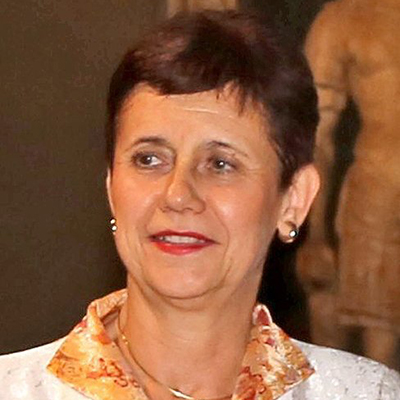
Lucia Banci is Professor of Chemistry at the University of Florence. Her research has provided original contributions and breakthroughs in Structural Biology and in biological NMR. She has addressed and unraveled many aspects of the biology of metal ions. The innovative in cell NMR approach developed by Lucia Banci and her group allows for the detection of human proteins in living human cells with atomic level resolution. She also exploited the extensive knowledge of structural biology by NMR to develop an absolutely innovative approach to vaccine design to design structure-based vaccines, based on the knowledge of the structure of the pathogen antigens and of its interaction pattern with antibodies.
Email: banci@cerm.unifi.it

Joy Buongiorno is a geomicrobiologist and Assistant Professor of Environmental Biology at Maryville College in east Tennessee. She applies cutting-edge data science approaches to untangle the complex dynamics that shape the co-evolution of the biosphere and geosphere. Combining her background in geoscience with a diverse toolkit of novel molecular methods, sequencing analysis, and bioinformatics tools, she delves into the interactions between microorganisms and their environment that allows life to thrive in some of the harshest places on the planet.
Email: joy.buongiorno@maryvillecollege.edu
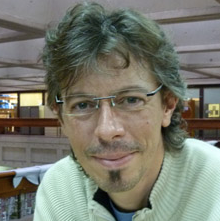
Diego Ferreiro is an Adjunct Professor in the Department of Biological Chemistry at the Universidad de Buenos Aires, Argentina. His research focuses on the theoretical aspects of information flow in biomolecules. His lab develops and applies computational tools to analyze protein structures and dynamics in both physiological and evolutionary timescales, sieving the chances and necessities that shape de/encoding of biological information.
Email: diegulise@gmail.com
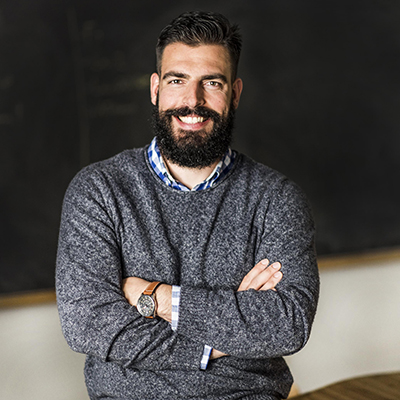
Donato Giovannelli is an Assistant Professor in Microbiology at the University of Naples Federico II, Italy and a Research Fellow at the National Research Council of Italy. His research interest includes the co-evolution of biosphere and geosphere and how life influences planetary-scale processes. Current research focuses on the microbial diversity and ecosystem functioning of extreme environments and their role in global biogeochemistry and reconstructing the emergence and evolution of metabolism. You can find out more visiting https://dgiovannelli.github.io or following Donato on Twitter.
Email: donato.giovannelli@gmail.com, donato.giovannelli@unina.it
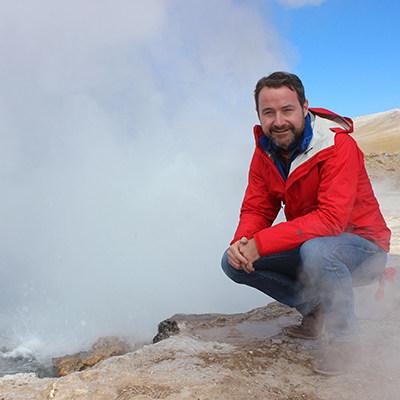
Kevin Hand is a planetary scientist at NASA’s Jet Propulsion Laboratory. He is the Project Scientist for the Europa Lander mission concept. His research focuses on the origin, evolution, and distribution of life in the solar system.
Email: kevin.p.hand@jpl.nasa.gov
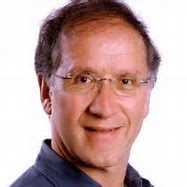
Michael Hecht is a Professor of Chemistry at Princeton University. Research in the Hecht lab focusses on the design and synthesis (in vivo) of vast combinatorial libraries of novel proteins that share no homology with sequences evolved by nature. Characterization of these de novo proteins reveals that many are well-folded and functionally active, and several of them can provide life-sustaining functions in vivo. The implications of this work for astrobiology are (i) The molecular toolkit for life need not be limited to naturally evolved sequences. (ii) Artificial genomes and proteomes may soon be built from non-natural sequences. (iii) Genes and proteins sharing no ancestry with life on earth can nonetheless sustain life.
Email: hecht@princeton.edu
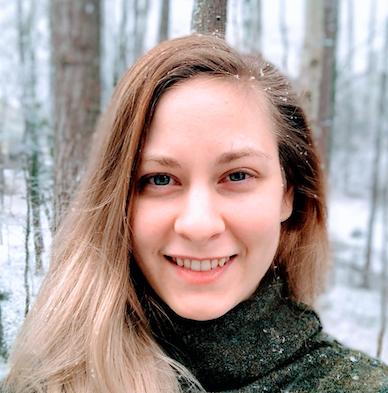
Adrienne Hoarfrost is an Assistant Professor in the Department of Marine Sciences and a faculty fellow in the Institute for AI at the University of Georgia. The Hoarfrost lab studies the interactions between biological systems and their environment in order to better understand the microbial drivers of the global carbon cycle and its impact on marine ecosystems and climate. The Hoarfrost lab develops deep learning and machine learning approaches to better capture the complexity of biology; develops high-throughput experimental techniques to enable data-driven hypothesis testing; and deploys technologies to demonstrate their performance in the field.
Lab website: www.hoarfrostlab.com
Email: adrienne.hoarfrost@uga.edu
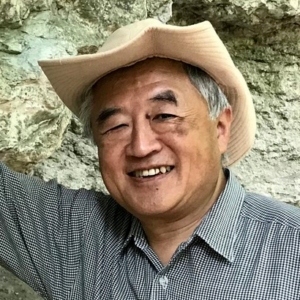
Yukio Isozaki is a Professor in the Department of Earth Science and Astronomy at the University of Tokyo. He has been done much fieldwork on ancient subduction complexes exposed on land in Japan, US, UK, Australia, Russia, and Mongolia, in which various records on pre-Jurassic lost ocean floors are archived; e.g., bacteria fossils from 3.5 Ga mid-oceanic ridge hydrothermal system, extinction-related Paleozoic-Mesozoic boundary superanoxia (long-term O2-depletion), and extraterrestrial material flux. He is also hunting for the Earth’s oldest material, Hadean zircons (back to 4.37 Ga), which contain tiny inclusions with bio-essential elements/compounds for initiating the first life.
Email: isozaki@g.ecc.u-tokyo.ac.jp
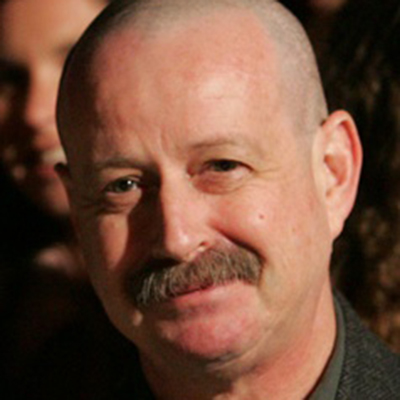
Oded Livnah is a Professor and Structural Biology at the Hebrew University of Jerusalem. His research encompasses the structural, biochemical, and biological properties of biologically related macromolecules primarily utilizing X-ray crystallographic methods. The research focuses on signaling processes of MAP kinases, bacterial infection, anti viral small molecule inhibitors, optimization of high affinity systems and protein design.
Email: oded.livnah@mail.huji.ac.il

Eli Moore is an Assistant Professor at Rowan University, and a biogeochemist who studies interactions between the biosphere and the geosphere from present day to deep time. He is interested in how these interactions impacted the origin of life, evolution of microbial metabolism, and microorganism response to current changing environmental conditions. His research uses state-of-the-art instrumentation to examine and discover new biological molecules linked to environmental change, and also employs global data resources in order to develop new ways to investigate the history of life on Earth and elsewhere in the universe.
Email: mooreek@rowan.edu
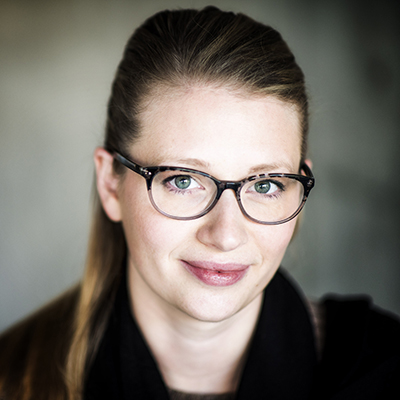
Shaunna Morrison, Carnegie Research Scientist at the Carnegie Institution for Science’s Earth and Planets Laboratory, is Co-Director of the 4D Deep-Time Data Driven Discovery Initiative and is a CheMin Co-Investigator on the NASA Mars Science Laboratory Mission. Her research centers around mineralogy, crystallography, planetary science, and data science applications therein. Her recent work has focused on characterizing Earth’s mineralogy through deep time and its correlation with geologic processes, its co-evolution with the biosphere, and its relationship to other planetary bodies, particularly Mars.
Website: www.carnegiescience.edu/smmorrison
Email: smorrison@carnegiescience.edu
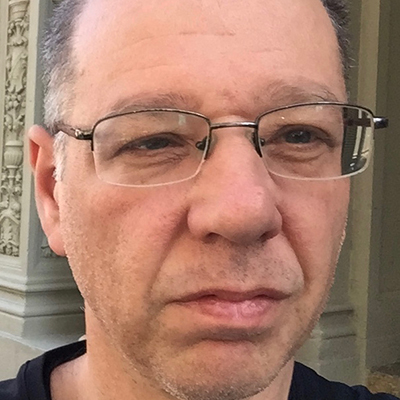
Dror Noy is the head of the Biotechnology Department and the Bioenergetics and Protein Design laboratory at Migal – Galilee Research Institute in Israel. His research group implements computational protein design tools, recombinant DNA techniques, and advanced bioanalytical and spectroscopic methods to design, prepare, and characterize small water-soluble protein-pigment complexes analogous to the natural photosynthetic reaction centers and light harvesting complexes.
Email: drorn@migal.org.il
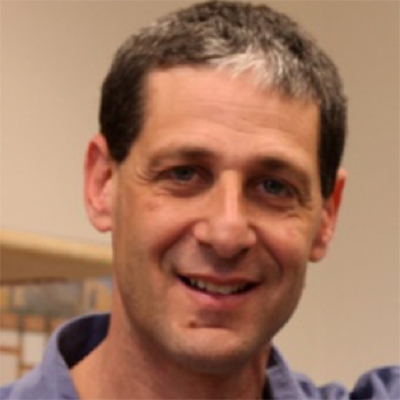
Yossi Paltiel is a full Professor in the Department of Applied Physics at the Hebrew University of Jerusalem, Israel. Paltiel’s group’s goal is to establish a way to incorporate quantum mechanics into room temperature “classical” computation and reading schemes. This will provide quantum properties at nanometer scale distances, while maintaining the physical characteristics of currently available computer input-output devices. Paltiel has a startup company named Valentis Nanotech founded in 2013. The company utilizes nanocellulose and quantum dots unique properties to produce a biodegradable transparent sheet with additional controlled optical and gas/water barrier properties.
Email: Paltiel@mail.huji.ac.il
Web: https://www.qnelab.com/
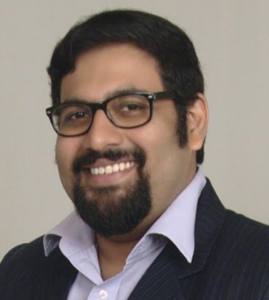
Anirudh Prabhu has joined the Carnegie Institution for Science as a Geo-informatics Scientist. He got his Ph.D. from Rensselaer Polytechnic Institute under the mentorship of the late Peter Fox. Anirudh, who is an expert in AI and machine learning, will work with a wide range of scientists, including the ENIGMA team on problems related to the organization, analysis, and visualization of multi-dimensional data resources.
Website: www.anirudhprabhu.com/
Email: aprabhu@carnegiescience.edu
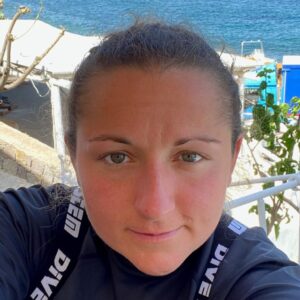
Fiorella Prada is an Assistant Professor in the Department of Marine and Coastal Sciences at Rutgers University and a marine ecologist/biologist by training. Her Ph.D. and postdoctoral research at the University of Bologna (Italy) has focused on climate change impacts on marine benthic calcifiers, in particular on corals. She joined the ENIGMA team as a postdoctoral researcher working with Prof. Paul Falkowski. As an assistant professor her current research at Rutgers focuses on understanding the mechanism(s) of biomineralization and investigating Archean carbonates to constrain environmental conditions of the early Earth, thus providing a better understanding of the conditions for the origin and early evolution of life.
Email: prada@marine.rutgers.edu
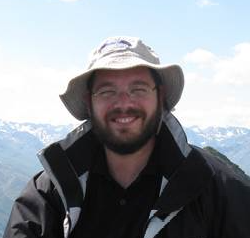
Hagai Raanan is a computational structure biologist and microbiologist. His research focuses on the evolution of nanomachines that drive the global energy cycle via electron-transfer reactions and understanding the basic principle of the protein fold around metal and organic ligands within Oxidoreductases. Hagai received his Ph.D. from Dept. of Plant and Environmental Sciences at the Hebrew University of Jerusalem, Israel, on June 2015. His thesis focused on the cyanobacteria inhabit the biological soil crusts (BSC). The research examined the mechanisms whereby cyanobacteria of the desert BSC cope with extreme environmental conditions using innovative field and laboratory techniques. In his free time, he is a passionate maker and loves to see his idea come to life.
Email: hraanan@gmail.com
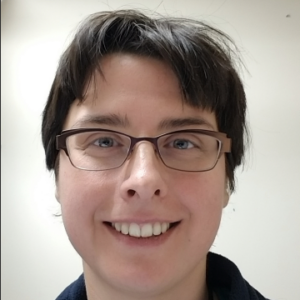
Jennifer Timm is a structure biologist/biophysicist fascinated by all things protein, always looking for the detailed mechanisms behind nature’s machines. Her scientific career led her to projects involved in drug discovery, drug resistance, histone deposition and metalloproteins. Hooked by the complex mechanisms seen in metalloproteins, she tries to shed light on how at the very origin of life peptides might have started to hold metal clusters and do complex chemical reactions while being comparably simple themselves. In her free time she enjoys nature, being outside as much as possible. Jennifer is currently an Associate Principal Scientist at Evotec.
Email: jennifer.timm@marine.rutgers.edu

Alexei Tyryshkin is a research scientist whose main research focus of expertise is in electron paramagnetic resonance (EPR), including its instrumental/method development and applications in broad fields of (bio)chemistry, materials science, and quantum computing. As part of the ENIGMA program, Alexei is involved in structural characterization of metal cofactors in small de novo peptides, utilizing EPR and other spectroscopic techniques. His interests include the design of functional metalloproteins, understanding metal site binding specificity, mechanisms of metal center reconstitution, assembly of multinuclear metal centers, directional electron transport between metal cofactors, electron transport chains in proteins, artificial photosynthesis, hybrid mineral-peptide photosynthetic systems, tuning redox properties and catalytic activity of metallopeptides.
Email: tyrysh@gmail.com
Post-doctoral Researchers
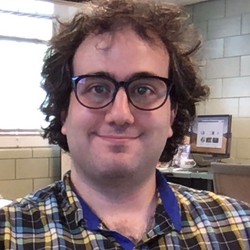
Ariel Aptekmann is a theoretical biologist who studies the evolution of interactions between proteins and ligands. He is interested in general principles that apply to early catalytic function in the origin of life, the evolution of metabolism, and genomic responses to living conditions. At Rutgers, his research focuses on developing bioinformatic tools to analyze sequence data and predict protein properties aiming to link functionality to environmental niches. Overall he expects to contribute to the understanding of life as a whole, focusing on the evolution of genomes and proteins, aiming to find trends or principles that direct the processes that rule over these nanomachines that make life possible. His goal is to increase our capacity to understand, engineer or predict the behavior of molecular machinery. For this purpose he is developing improved, machine-learning-based algorithms to predict properties associated with molecular machinery.
Email: ariel.aptekmann@rutgers.edu
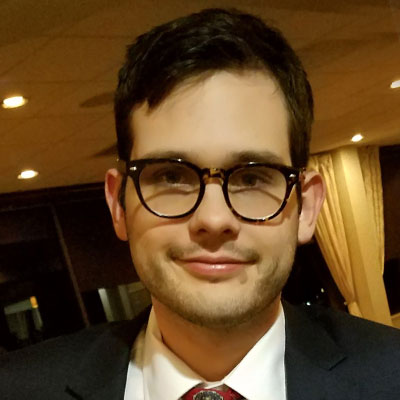
Ian Campbell is a Post-doctoral researcher at Rice University, working in the Joff Silberg lab. Ian is a synthetic biologist whose research focuses on examining mutational landscapes to probe theories about evolutionary history and protein function. By examining these landscapes, Ian hopes to uncover design rules for electron transfer proteins and model evolutionary trajectories of natural proteins.
Email: ian.j.campbell@rice.edu
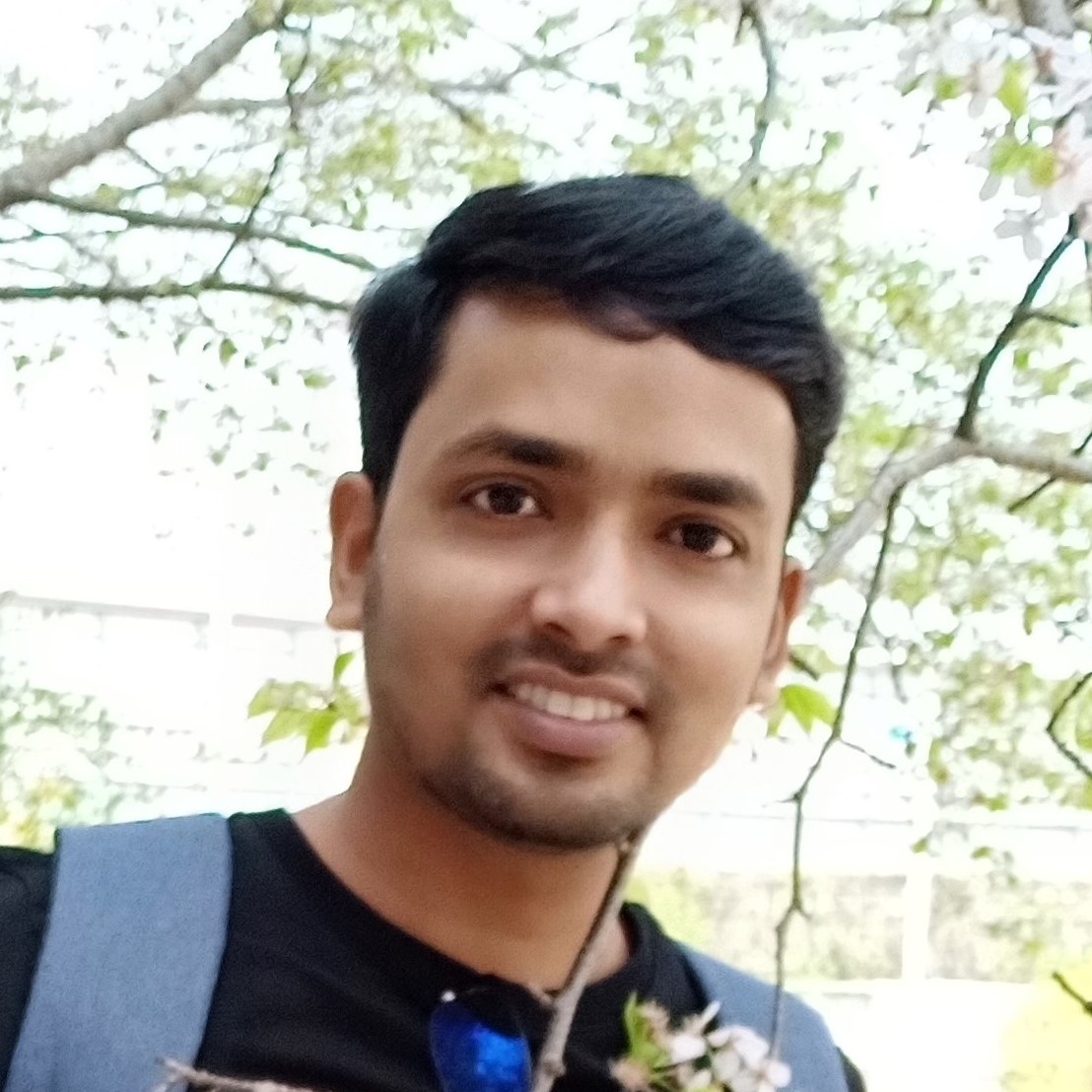
Sk Imadul Islam completed his Ph.D. at the S. N. Bose National Centre for Basic Sciences, India, under the supervision of Professor Rajib Kumar Mitra, specializing in ultrafast dynamics and spectroscopic investigations of fluorescent probes. He then joined Professor Yung Sam Kim’s 2DIR lab at UNIST, Ulsan, South Korea, as a post-doctoral research associate. Currently, Imadul is a post-doctoral researcher at Rutgers University, USA, working with Professors Paul Falkowski and Vikas Nanda. His research focuses on experimental studies of life’s origins, electron transfer reactions, and protein structures.
Email: skimadul.islam@rutgers.edu
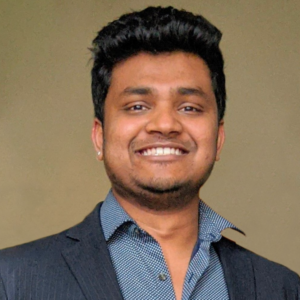
Jyotirmoy Mondal is a protein biochemist and microbiologist. He has always been fascinated by the world of microbes and how omnipresent they are with unfathomable capabilities. Jyotirmoy became particularly interested in extremophilic microorganisms, which he thinks are the most interesting organisms as they can be found in unimaginable corners of our planet. His interest in astrobiology, more specifically associated with extremophilic microorganisms, has taken shape over time. Jyotirmoy’s PhD work provided him the opportunity to explore his interest in astrobiology by looking through the lens of protein biochemistry, studying the key primary reaction centers and electron transport machinery in the thylakoid membranes of cyanobacteria. His postdoctoral journey at Rutgers with the ENIGMA team will shine light on the origin and evolution of these conserved and extremely essential building blocks of life. He will be using molecular modelling software to design primordial proteins, express, purify and reconstitute them, and characterize their structure, metal binding and catalytic activity.
Email: jmondal@marine.rutgers.edu
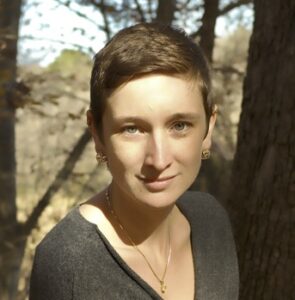
Corday Selden is a biogeochemist focused on reciprocal interactions between microbes and their environments. One arm of her current work weds recent AI-driven advances in the field of structural biology and laboratory experiments to investigate microbe-metal interactions, including how cells alter the chemical speciation and isotopic fractionation of bioessential metals in the environment. Another arm focuses on understanding how the biogeochemical behavior (particularly N cycling) of phytoplankton change with their physico-chemical environment. Ultimately, Corday’s research is motivated by a desire to understand the feedbacks between the biosphere and geosphere that regulate Earth’s past and future habitability.
Email: crselden@marine.rutgers.edu

Michael L. Wong is a Carnegie Postdoctoral Fellow at the Carnegie Institution for Science’s Earth & Planets Laboratory studying planetary atmospheres, habitability, biosignatures, and the emergence of life. In his spare time, he hosts a podcast called Strange New Worlds, which examines science, technology, and culture through the lens of Star Trek.
Email: mwong@carnegiescience.edu
Web: Webpage
Graduate Students
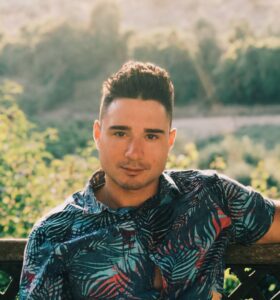
James Reilly is a graduate student in Quantitative Biomedicine working under the combined auspices of Dr. Paul Falkowski and Dr. Vikas Nanda. His research interests include astrobiology and the origins of life. He is currently studying the emergence of early protein form and function and the role ancient metallopeptides played in the evolution of life. By studying and hopefully linking the common ancestry of ferredoxins and Rossman-fold enzymes we hope to discover and construct peptide transition fossils representing modular units amenable to self-assembly into more complex proteins. Outside of biology James is an avid boxer and heads a wine start-up.
Email: jamesrei@scarletmail.rutgers.edu
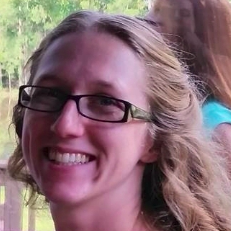
Hannah Rutledge is a graduate student studying bioinorganic chemistry in the lab of Akif Tezcan at the University of California, San Diego. Hannah is interested in Fe-S clusters, focusing on engineered Fe-S proteins and on the unique 8Fe-7S P-cluster in nitrogenase. She studies these clusters through a wide range of techniques including protein cyrstallography, cryoEM, spectroscopic studies (EPR, Mossbauer, and EXAFS), and biochemical assays. By studying synthetic Fe-S proteins, she hopes to gain an understanding of how these clusters may have evolved and how to design electron transport chains in proteins. Hannah’s work on nitrogenase has focused on the unique ligand set of the P-cluster which coordinates the precisely timed electron transfer to the active site for dinitrogen reduction.
Email: hrutledg@ucsd.edu
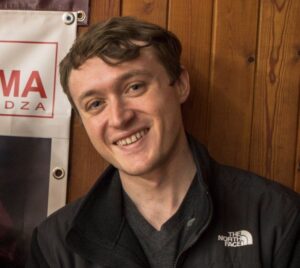
Jan Siess is a graduate student in Quantitative Biomedicine working in the lab of Dr. Vikas Nanda. He is interested in the design and evolution of metalloproteins, as well as how they go about facilitating electron transfer. He is currently working on developing a computational methodology for better predicting protein domain boundaries. By better identifying domain boundaries, we may gain clearer insight into how those proteins might have evolved, and could further use that information to construct larger, more complex oxidoreductases. In addition to that, he is also working on developing more programs for the protein design software library “protCAD”, which originated in the Degrado protein design lab.
Email: jsiess93@gmail.com
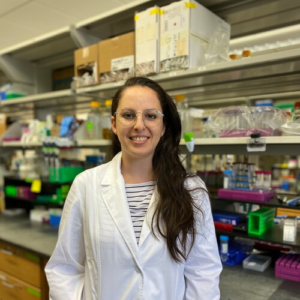
Liz Windham is a graduate student in the Biochemistry and Cell Biology PhD program, with a focus on synthetic biology and studying in Joff Silberg’s Lab at Rice University. Windham is interested in various prospects in protein engineering as well as redox biology and trying to bring some aspects of redox biology into an in vitro setting. Currently, she is working on two different projects with two different versions of the same protein, sulfite reductase (SIR). After completing her degree, Windham hopes to continue doing research in the synthetic biology field.
Email: emw13@rice.edu
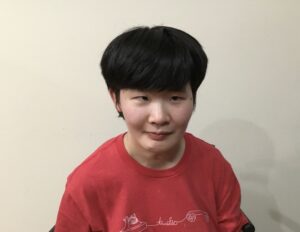
Renna Yi is a graduate student in Physics & Astronomy, working with Paul Falkowski and Vikas Nanda. She is interested in mathematical modeling of catalysis and autocatalysis, in the lofty hopes that such models might shed light on physically feasible mechanisms with which such systems could have emerged from prebiotic chemistry.
Email: ry136@rutgers.edu
Visiting Scientists

Brian Stockman is a Professor in the Department of Chemistry at Adelphi University. He is a biochemical NMR spectroscopist by training and currently leads a fragment-based drug discovery effort to find novel antitrichomonal agents. As a Visiting Scientist on sabbatical at Rutgers, he plans to contribute to the ENIGMA project by using bioinformatics related computational tools to explore the relationship between mineral surfaces and the evolution/selection of the first functional peptides/proteins, with an emphasis on the origins of biological electron transfer chemistries.
Email: bstockman@adelphi.edu
Staff
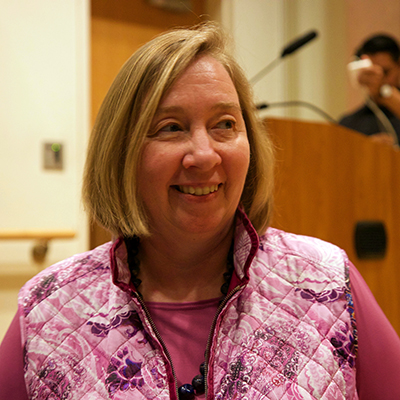
Beatrice Birrer – Program Coordinator.
Email: bea@marine.rutgers.edu
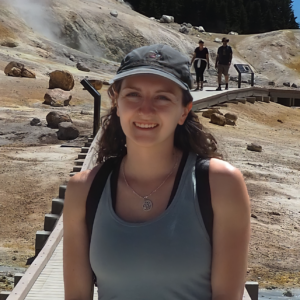
Juliana DiGiacomo is a computational biologist under Dr.Vikas Nanda at her alma mater, Rutgers University. She is especially interested in the origins of life and the incredible leap from inorganic geochemistry to replicative life. After serving a year in AmeriCorps NCCC, she has returned to the Department of Marine and Coastal Sciences at Rutgers. Presently, she is working to expand upon her undergraduate thesis “The Environment as a Driving Force in the Coevolution of Ferredoxin Termini” which was conferred the Henry Rutgers Scholar Award and highest honors. Her current goal is to unravel the evolution of the ferredoxin fold, as it is likely representative of life’s simplest proteins capable of electron transfer. Juliana’s work has been part of the ENIGMA interdisciplinary program focused on the evolutionary origins of electron transport proteins. In August of 2023, Juliana will begin a doctoral program in Chemistry and Biochemistry at Georgia Tech in Atlanta.
Email: juldigiacomo@gmail.com
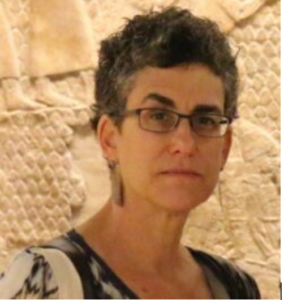
Liti Haramaty – Laboratory / Technical Researcher
Email: haramaty@marine.rutgers.edu
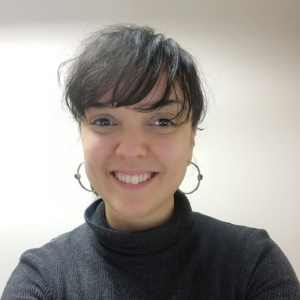
Alesha Vega is a Community Engagement and Outreach Coordinator in the Department of 4-H Youth Development at Rutgers University. In addition to her role as a broader impact coordinator for the ENIGMA team, she has been involved with civic engagement, public policy, community organizing, education and advocacy for more than fifteen years. She has an undergraduate degree in Biology and a Master’s in Public Policy. She is an AmeriCorps alumni and an avid environmental and social justice activist.
Email: aleshav@marine.rutgers.edu
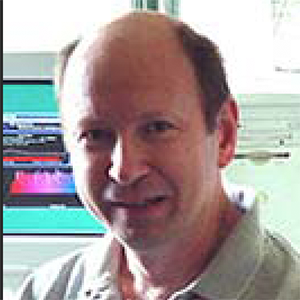
Kevin Wyman is the Lab Manager for Dr. Paul Falkowski and the ENIGMA Team at Rutgers University. Kevin’s research interest parallels those of the entire group. He helps people in the group with technical and research support, procurement, proper maintenance and use of research instrumentation while also overseeing adherence to proper lab safety procedures. He graduated with Bachelor of Science degree from University of Washington with majors in Oceanography and Zoology, and completed Master of Science degree in Marine Environmental Science from SUNY Stony Brook. Kevin worked in Dept. of Oceanography at Brookhaven National Lab and has participated in multiple Oceanographic sea-going research expeditions and coral reef research projects requiring SCUBA diving.
Email: wyman@marine.rutgers.edu
Undergraduate Students
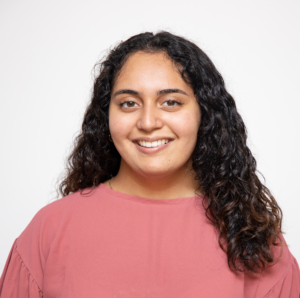
Rhea Desai is an undergraduate studying a major in Molecular Biology and Biochemistry and a minor in South Asian Studies. Rhea is currently working with Dr. Nanda and Dr. Timm to design, produce and screen synthetic Ni-based hydrogenase peptides. Outside of research, Rhea enjoys spending time outdoors especially going skiing in the winter.
Email: rcd109@scarletmail.rutgers.edu
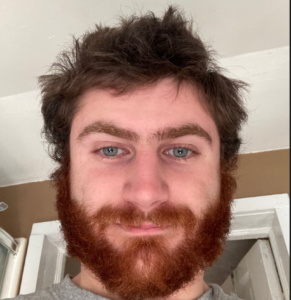
Dylan Klein is an undergraduate student at Rutgers studying Biochemistry and Environmental Science. He is receiving training from Dr. Jenni Timm in wet-lab methodologies frequently used to synthesize and study proteins. Dylan is most interested in learning about the structures of proteins and how they influence the functions that those proteins are ultimately able to perform, especially of those proteins involved in signaling pathways and human metabolism. Away from science Dylan is an appreciator of photography and film, as well as enjoy listening to and playing music.
Email: dsk129@scarletmail.rutgers.edu

Jack McCloskey is an undergraduate student at Rutgers studying biotechnology and computer science. Jack is working with Dr. Nanda in designing novel capsid protein libraries with the goal of expanding AAV2’s genome capacity. Additionally, Jack is doing a GH Cook Thesis researching the mechanisms by which viruses have evolved bigger capsids using computational approaches.
Email: jrm433@scarletmail.rutgers.edu
Alumni
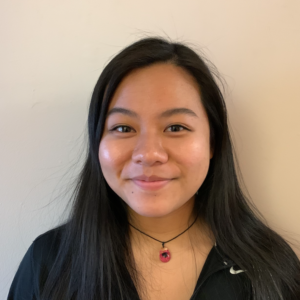
Nikki Chan previously was a Rutgers University undergraduate studying Biochemistry. She worked with Dr. Josh Mancini as her mentor helping with the design of novel catalysts. During her time with ENIGMA Nikki learned culturing techniques, working in an anaerobic chamber, planning and executing activity assay as well as computational tools.
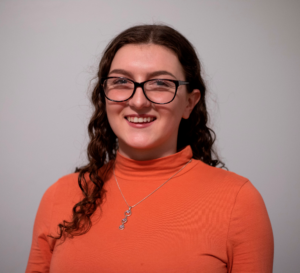
Juliana DiGiacomo was an undergraduate studying a major in Molecular Biology and Biochemistry and two minors in Astrobiology and Comparative and Critical Race and Ethnic Studies. Juliana’s work has been part of the ENIGMA interdisciplinary program focused on the evolutionary origins of electron transport proteins (e.g., Ferredoxin). Her work was with the Nanda Lab and her mentor was ENIGMA team post-doctoral researcher Dr. Saroj Poudel. Juliana DiGiacomo was a 2021 recipient of Henry Rutgers Scholar Award which recognizes graduating seniors who have completed outstanding independent research projects leading to an interdepartmental thesis or a thesis in their major field of study. Thesis title: “The Environment as a Driving Force in the Coevolution of Ferredoxin Termini”. Juliana is currently serving a year in Americorps, a domestic program for national community service, before pursuing graduate studies in prebiotic chemistry.
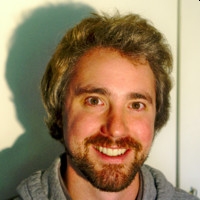
Julian Esselborn previously studied as a post-doctoral researcher with Dr. Akif Tezcan of UCSD in how metals in proteins can be used for structural purposes as well as electron conductivity. With electron flow through biological material as the central energetic process of life in mind, he attempted to build novel protein assemblies with metal mediated electron conductivity properties in the Tezcan lab.
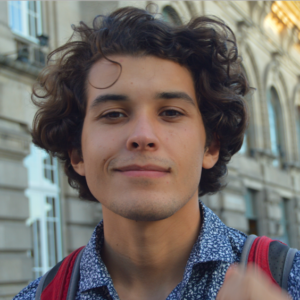
Orion Farr previously studied as a Master’s student under the mentorship of Drs. Jihua Hao, Nathan Yee, and Paul Falkowski at Rutgers University. His work reconstructed photochemical nutrient cycling pathways critical to marine productivity during the Archean Eon (4-3.5 Ga). He is currently in France at the Aix-Marseille University for his Ph.D., where he is investigating the comparative redox chemistry of catalytic minerals and primitive enzymes to reveal the mysterious origins of metabolism.
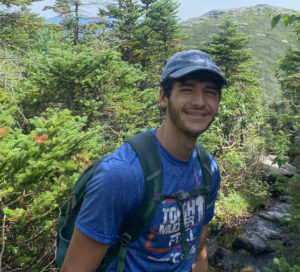
Nolan Fehon was a Rutgers undergraduate majoring in marine science. He was most interested in how microbial metabolisms relate to environmental limitations and evolution. Nolan worked with Dr. Nanda and Dr. McGuinness to create a database of proteins to understand how changes in their structure are reflected in their redox potentials. While at Rutgers Nolan was a student representative for the Rutgers Climate Task Force and the winner of the 2022 undergraduate Cook Community Leadership Award.
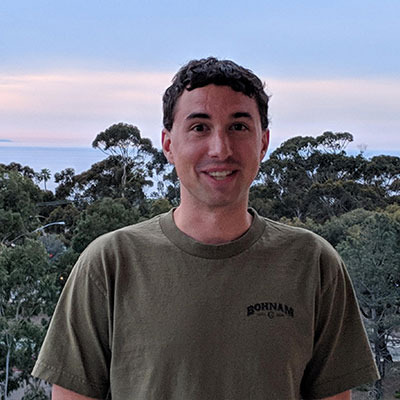
Derek Gagnon previously studied as a post-doctoral researcher with Dr. Akif Tezcan of UCSD and became interested in how metalloproteins evolved to bind metal ions selectively and fulfill a vast array of functions related to life. He worked in the Tezcan lab designing metal binding sites at the interface of proteins which have nascent catalytic activity both in vitro and in vivo.
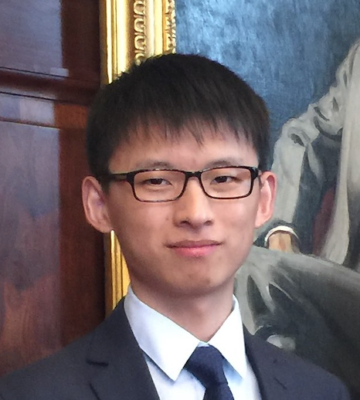
Jihua Hao previously studied as a post-doctoral researcher working mainly with Dr. Nathan Yee and Paul Falkowski of Rutgers University on photochemistry in early Earth and Mars environments. He also investigated the availability of nutrients and transition metals in the early oceans. He is currently a faculty member of the University of Science and Technology of China.
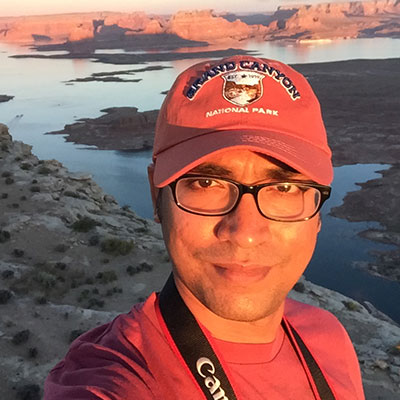
Bhanu Prakash Jagilinki was a post-doctoral fellow under the guidance of Dr. Paul Falkowski and Dr. Vikas Nanda at Rutgers University. Using his biochemistry and chemical biology background he worked on elucidating the origins of ferredoxins, primarily focusing on half-ferredoxins. Bhanu is currently a post-doctoral associate in the Peters Lab at the Institute of Biological Chemistry at Washington State University.
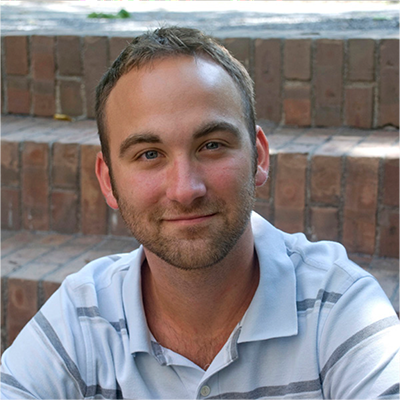
Joshua Mancini previously studied as a post-doctoral researcher with Dr. Vikas Nanda of Rutgers University. Josh decided to intertwine computational and combinatorial de novo protein design to elucidate design principles of early enzymes as well as build novel catalysts for useful chemistry.
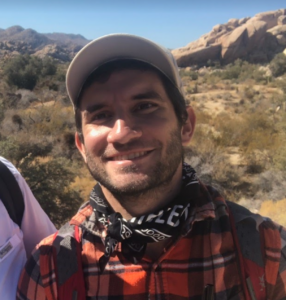
Aaron Martinez previously studied as a post-doctoral researcher with Dr. Kat Dawson of Rutgers and became interested in the biogeochemical role of microbes in coupling the carbon, iron, and sulfur cycles in the environment. He is an organic geochemist and geobiologist interested in all things at the intersection of life and the environment. Aaron is currently at UC Santa Barbara continuing his post-doctoral research in the Noise Lab of Dr. Morgan Reed Raven.
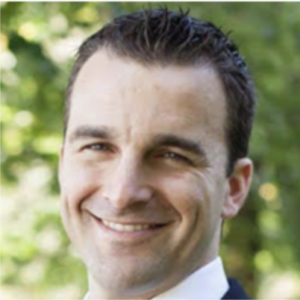
Kenneth McGuinness previously studied as a post-doctoral researcher working mainly with the Drs. Nanda, Bromberg, Falkowski and Yee of Rutgers University. Ken’s chief interest was to search for connections between the geosphere and biosphere that are preserved and are indicative of co-evolution throughout time to understand how metal containing proteins became the electronic wires of life. His hypothesis revolved around biology adapting mineral surface chemistry to promote sustainable out of equilibrium dynamics.
While at Rutgers Ken was passionate about Education and Outreach programming. Ken is currently a faculty member at Caldwell University as an assistant professor in the School of Natural Sciences.
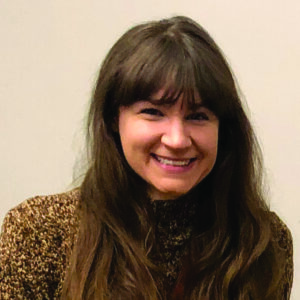
Ashley Murphy earned her Ph.D. under the advisement of Dr. Mihaela Glamoclija at Rutgers University – Newark. Her graduate research at Rutgers focused on identifying and characterizing microbial and mineralogical biosignatures in dolomitized carbonate rocks. She is currently working as a postdoctoral research scientist under the advisement of Dr. R. Aileen Yingst at the Planetary Science Institute, where she is a member of a Mars 2020 SHERLOC instrument team. Her current role focuses on connecting fine-scale WATSON images and SHERLOC Raman data to other rover- and orbital-derived data to reconstruct the geologic history of Jezero crater, Mars.
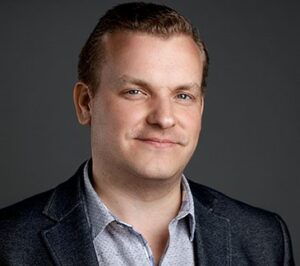
Douglas Pike previously studied as a research scientist in fields ranging from genetics and molecular biology to biochemistry and computational biophysics with Dr. Vikas Nanda of Rutgers University. He was the lead developer in the Nanda Lab of the protein design software library protCAD, which originated in the Degrado protein design lab. His interests were in designing new backbone folds capable of robust electron transfer and catalytic activity as mimetics of core natural active sites in proteins and prebiotic model systems.
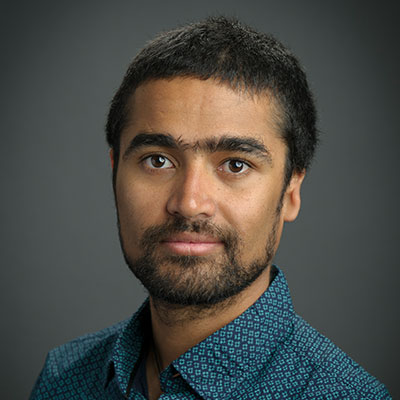
Saroj Poudel was a EOAS and NASA postdoctoral fellow under Dr. Paul Falkowski and Dr. Vikas Nanda of Rutgers University. He combined his computational and experimental skills to design and elucidate the evolutionary process of early evolving proteins/peptides.
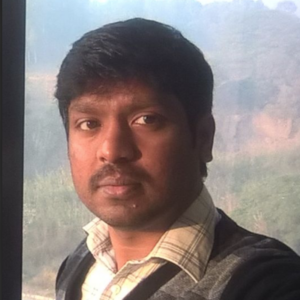
Prabakaran Ramakrishnan previously studied as a post-doctoral researcher working mainly with Dr. Yana Bromberg as a computational biologist broadly interested in the evolution of the complex dynamics among biomolecules, cells, and organisms. Specifically, on the ENIGMA project he was curious about the evolution of protein as a nanomachine and the unseen world of host-microbe communications.Currently, Prabakaran is continuing his work on developing deep-learning tools to profile metagenomes as part of Emory University’s Department of Computer Science.
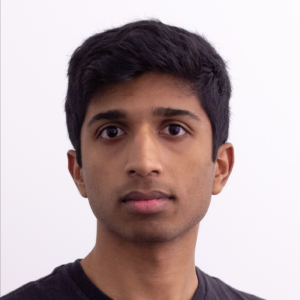
Shaheer Rizwan previously was a Rutgers University undergraduate studying Molecular Biology and Biochemistry, with a minor in Economics. He worked as a student in the Nanda lab learning protein design and computational biology. He worked on a project seeking to better understand specific cofactor binding motifs with data science tools. Shaheer has started medical school at Rutgers Robert Wood Johnson Medical School (RWJMS).
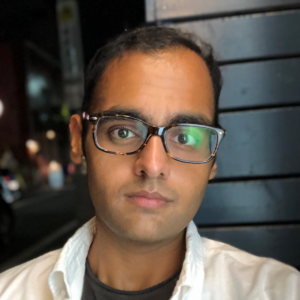
Havishk Tripathi previously was a Rutgers University undergraduate studying Chemical Engineering, with a minor in Earth and Planetary Sciences. He worked as a student in the lab of Dr. Paul Falkowski for 2 years, researching topics in geochemistry/geobiology, astrobiology, and biosignature detection. Havishk’s research included developing a kinetic model to capture the surface chemistry of Enceladus, and understanding abiotic processes for signs of life on exoplanets. After Rutgers Havishk went to Japan to work on the Hayabusa2 mission at the Institute for Planetary Materials, Okayama University, where he is completing his M.S.

